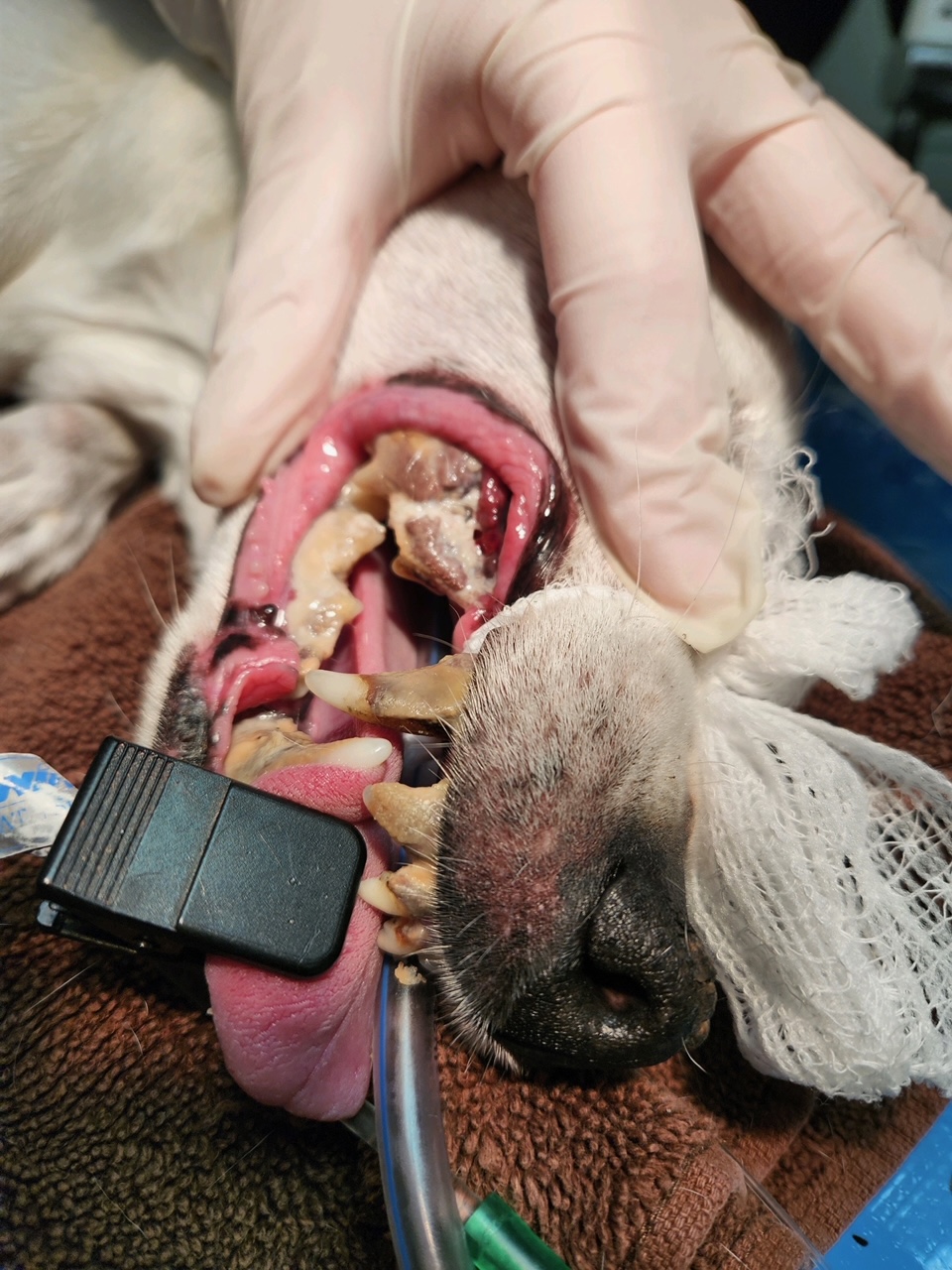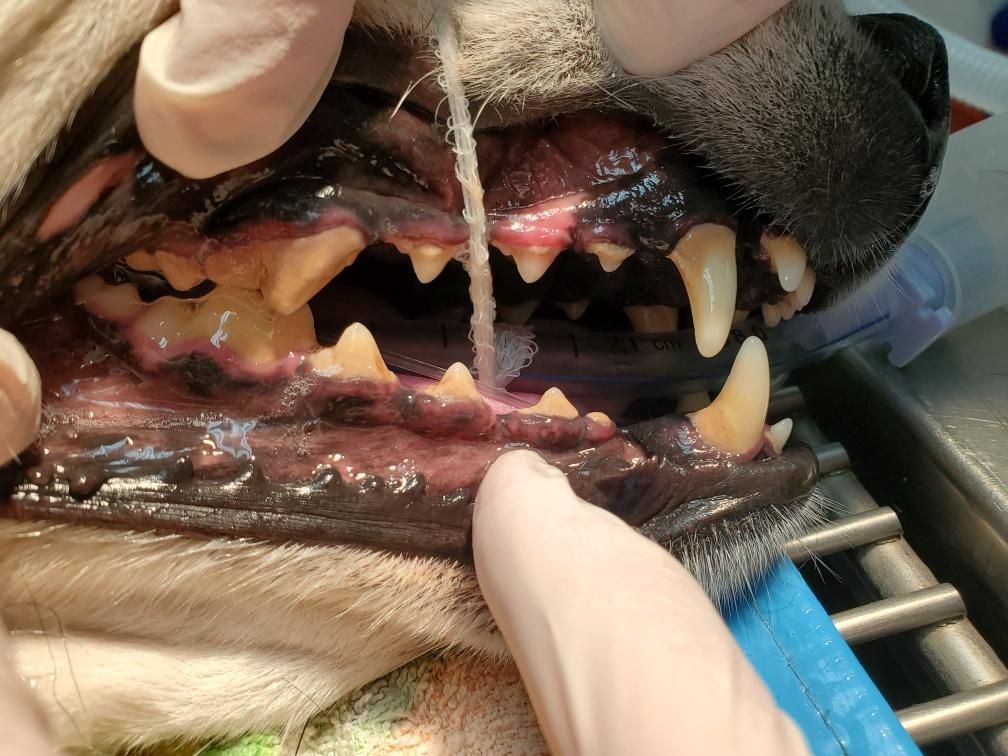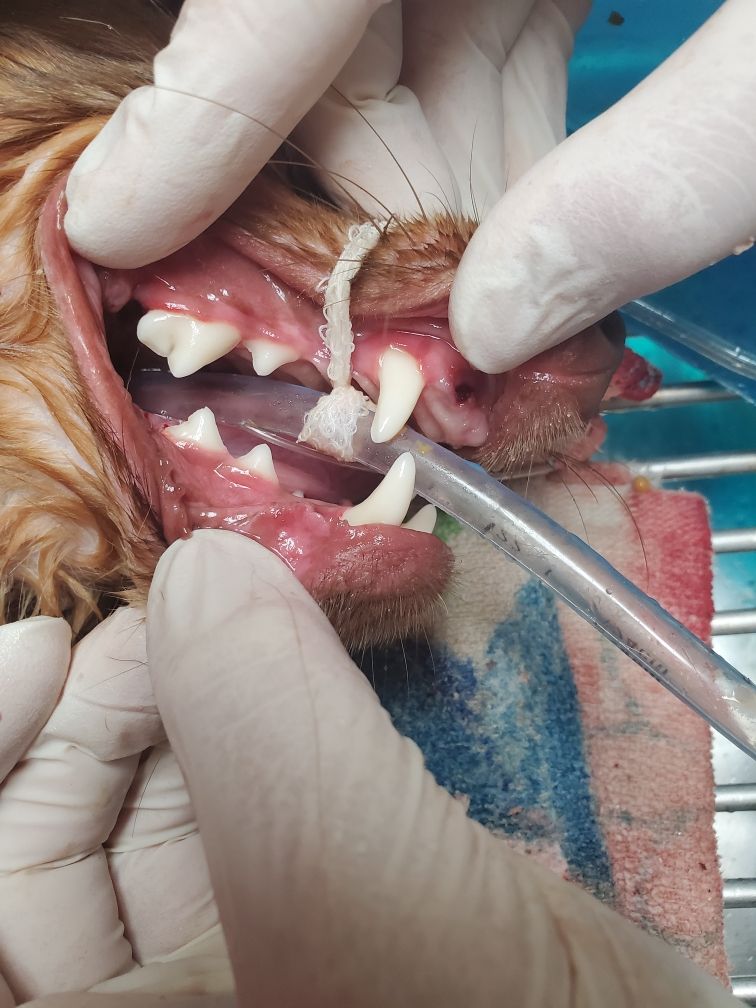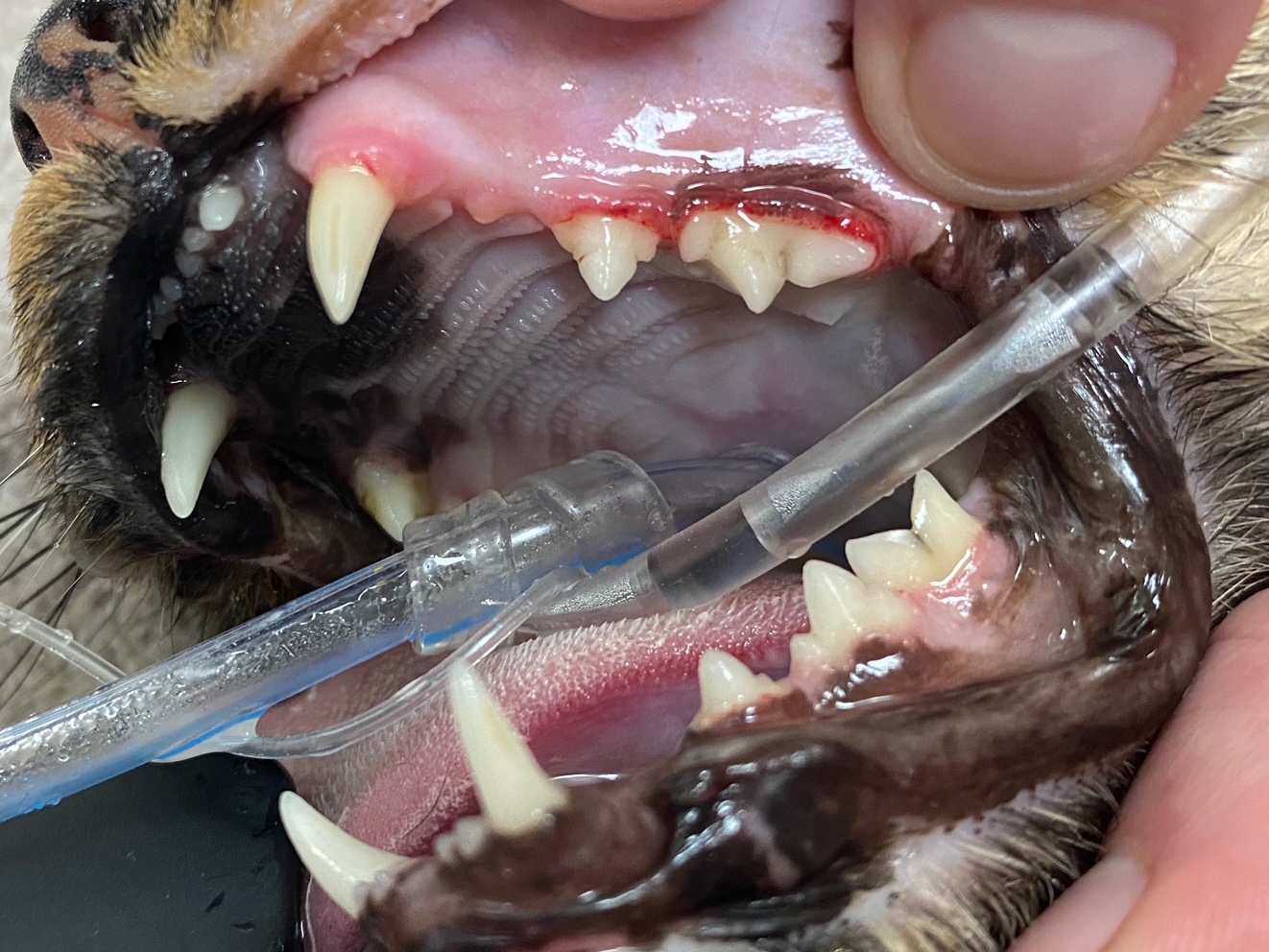Contact Us!
Dental Disease
Animal Doctor provides dental disease evaluation and treatment for dogs and cats. We accept referrals and provide second opinions.
Description: Dental disease includes plaque, tartar, and calculus buildup on the teeth as well as the accompanying gingivitis and periodontal disease that occurs over time.
Symptoms: Bad breath, dirty appearing teeth, inflammation of the gums, difficulty eating or dropping food are all symptoms of significant dental disease.
What to look for: Difficulty chewing, dropping food out of the mouth, excessive drooling, discomfort with the mouth, bad breath, missing or broken teeth, swelling of the lips, chin or muzzle.
How does it happen? Plaque and tartar form due to food material and bacteria on the teeth. Over time plaque and tartar harden to form calculus. The bacteria that live on the plaque, tartar, and calculus cause inflammation of the gingiva. Eventually that inflammation causes bone loss around the tooth roots which is called periodontal disease. As periodontal disease progresses, teeth may become loose, fracture, or fall out.




What questions do we ask?
- What changes have you noticed?
- How long have you noticed a change?
- Bad breath?
- Any masses or swellings in the mouth, tongue and/or lips?
- Any discoloration in gums, tongue, lips or teeth noted?
- Appetite? Dropping food?
- Have you tried anything at home? Do you brush or give dental treats?
- Any history of allergies/ chewing fur/ excessive grooming?
- When was his/ her last dental cleaning?
What are the steps we take to treat your pet?
- The first step in diagnosing and treating your pet is a taking a thorough history and completing a thorough physical exam.
- We may also recommend some general blood testing (chemistry panel and complete blood count) to check organ function and for infections.
- A full dental cleaning under anesthesia is typically needed to remove all dental buildup, assess tooth health and do any extractions or other necessary treatments.
Animal Doctor Dental Disease potential treatment plans?
Oral medications
- Antibiotics are used to treat bacterial infections in the mouth which are common in pets with dental disease and often lead to increased inflammation of the gingiva and periodontal disease. Antibiotics may be started prior to or after the dental cleaning depending on the severity of dental disease and infection.
- Pain medications are typically prescribed after dental cleanings to help decrease pain and inflammation due to extractions or other dental procedures.
Injections
- Nerve blocks are placed while under anesthesia prior to dental extractions to help decrease pain due to any extractions.
Topical Medications / Treatments
- In early dental disease and for preventative maintenance, tooth brushing, dental treats and chews, oral sprays, rinses or water additives may be used to help slow dental buildup. Once dental disease has progressed, these treatments are not as effective and a full dental cleaning should be done.
How do we arrive at a diagnosis and appropriate treatment plan?
- During the exam, we will assess oral health, determine the degree of tartar and calculus buildup and gingivitis present and create a plan for treatment. To fully assess tooth health, oral examination under anesthesia is needed to allow probing of the gingival sulcus for pockets.
- While your pet is under anesthesia for a dental cleaning, we will scale and polish the teeth, check for any tooth fractures, probe the gingival sulcus to assess for pockets around the tooth roots, take dental radiographs to assess tooth health by looking at the tooth roots and surrounding bone, and extract any teeth that are past the point of saving.
What results have we seen




What are the risks if dental disease is left untreated?
- Worsening dental disease will cause worsening gingivitis, periodontal disease, tooth root abscesses, tooth loss, and oral pain.
- Dental infections can also get into the bloodstream and spread to the major organs in the body (i.e. heart, lungs, liver, kidneys).
Animal Doctor Provider
Dr. Leigh Wacker has 8 years of clinical experience managing dental disease in companion animals











